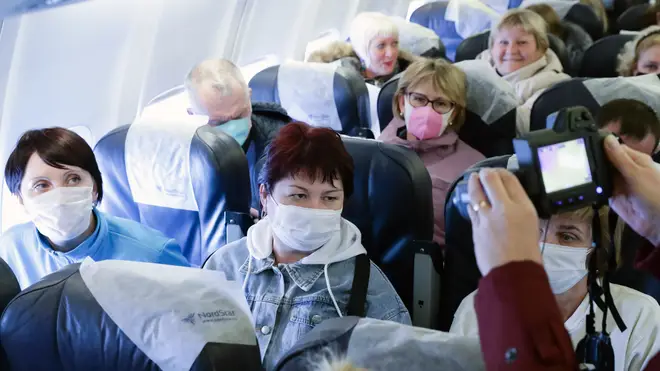
Ian Payne 4am - 7am
30 January 2020, 10:42
The UK is still negotiating with China over a flight to evacuate British nationals from Wuhan, the city at the epicentre of the coronavirus outbreak.
A minister has confirmed that the flight will not take place on Thursday as the Foreign Office had originally hoped.
Speaking to Sky News, School Standards Minister Nick Gibb said: "There are some difficult issues that are being negotiated at very senior levels between the British Government and the Chinese Government.
"Our priority is to ensure the safety and welfare of British nationals in Wuhan and ensure they do return to the UK as soon as possible."
Mr Gibb said the plan was for them to be taken to an "NHS facility" on their return where they would be kept for 14 days to make sure they do not have symptoms of the virus.
He added: "The flight is certainly coming to a military base in the UK and then the British nationals will go to the NHS facility for 14 days of quarantine."

The Government anticipates flying out around 200 UK citizens who have been in Wuhan and the surrounding Hubei province.
A Foreign Office spokeswoman said on Wednesday night that "a number of countries' flights have been unable to take off as planned".
Adding: "We continue working urgently to organise a flight to the UK as soon as possible.
"We remain in close contact with the Chinese authorities and conversations are ongoing at all levels."
Meanwhile, the World Health Organisation (WHO) emergency committee is expected to meet on Thursday to decide whether to declare an international public health emergency.
The WHO said the "whole world needs to be on alert" over the new coronavirus outbreak.
Its emergency committee said last week it was "too early" to pronounce a global health emergency.
Dr Michael Ryan, executive director at the WHO Health Emergencies Programme, said the decision to reconvene was due to the increasing number of cases and evidence of person-to-person transmission of the virus.
He told a press conference in Geneva: "The whole world needs to be on alert now, the whole world needs to take action and be ready for any cases that come, either from the original epicentre or from other epicentres that become established."
The number of cases has jumped to 7,711, surpassing the 5,327 people diagnosed with severe acute respiratory syndrome (Sars) during the 2002-03 outbreak.
The death toll, which has risen to 170, is currently lower than the 348 people who died in China from Sars.